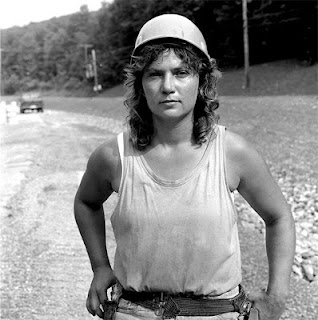Contentment Paradigm
The source of discontent in our lives almost always comes from comparison, either with the past, or with what you hope to be the future. Which one bothers you more may give you a clue into a bigger problem to work on.
When a relationship goes bad, do you most often wish things were the way they used to be or that you were with someone else?
If you're unhappy with your job, do you instinctively wish that things were different where you are now or that you worked at a different place all together?
If you find yourself always wishing that things were like they were in the past or that your situation was the same, just, better, that might be a sign that you're more prone to staying in unhappy and irreconcilable situations or relationships for too long.
If you find yourself always looking to the future—struggling more with "the grass is always greener" phenomenon or dreaming about the way things could be—you may be more prone to feeling trapped or suffocated in your current situation and cut and run too early.
Not everyone who is unhappy with their life has these underlying issues, but if you saw yourself in either of these two categories be sure to take the time to figure out when it’s the situation that needs to improve or when it’s just your point of view.
More of us need to change our points of view, our perspective on life and on our current situation. It is these old habits of thoughts and the way we see things that lead us to always fall onto an unsatisfactory feeling wanting more or better or just having a feeling of this is not enough.
Be happy with what you have right now and try to look at every morning every situation, every relationship with fresh eyes. If you are familiar with the idea of limiting beliefs or paradigms, you'll understand how your belief system can not only hold you back from achieving your dreams, but actually sabotage any success that you may have as well.

When a relationship goes bad, do you most often wish things were the way they used to be or that you were with someone else?
If you're unhappy with your job, do you instinctively wish that things were different where you are now or that you worked at a different place all together?
If you find yourself always wishing that things were like they were in the past or that your situation was the same, just, better, that might be a sign that you're more prone to staying in unhappy and irreconcilable situations or relationships for too long.
If you find yourself always looking to the future—struggling more with "the grass is always greener" phenomenon or dreaming about the way things could be—you may be more prone to feeling trapped or suffocated in your current situation and cut and run too early.
Not everyone who is unhappy with their life has these underlying issues, but if you saw yourself in either of these two categories be sure to take the time to figure out when it’s the situation that needs to improve or when it’s just your point of view.
More of us need to change our points of view, our perspective on life and on our current situation. It is these old habits of thoughts and the way we see things that lead us to always fall onto an unsatisfactory feeling wanting more or better or just having a feeling of this is not enough.
Be happy with what you have right now and try to look at every morning every situation, every relationship with fresh eyes. If you are familiar with the idea of limiting beliefs or paradigms, you'll understand how your belief system can not only hold you back from achieving your dreams, but actually sabotage any success that you may have as well.
This is an article I found on Huffington Post that is written by Mary Morrissey. She discusses how to recognize and change paradigms.
Why do we believe so strongly that outside events or circumstances control our lives? Probably because of something called a "paradigm." A paradigm is defined as a pattern, example or archetype.This kind of paradigm creates the results of our actions, including how much money we make, how healthy we are, how happy we are and who we love. Our paradigm is another word for our reality, and everyone's paradigm is slightly different from those around us.
Mary goes on to describe paradigms as follows...
Paradigms are formed from many years of experience and by what people are taught by teachers, parents, friends and the world at large. These lessons are so ingrained that it can be challenging for a person to realize that they are in the middle of a negative paradigm until it is pointed out to them.To these people, failure seems like the norm. Some people even get comfortable with failure because it is what they have come to expect after years of negative reinforcement.
Read the full article on http://www.huffingtonpost.com/marymorrissey/the-process-of-forming-a-_b_7561150.html
Truly caring for your success.


Comments
Post a Comment